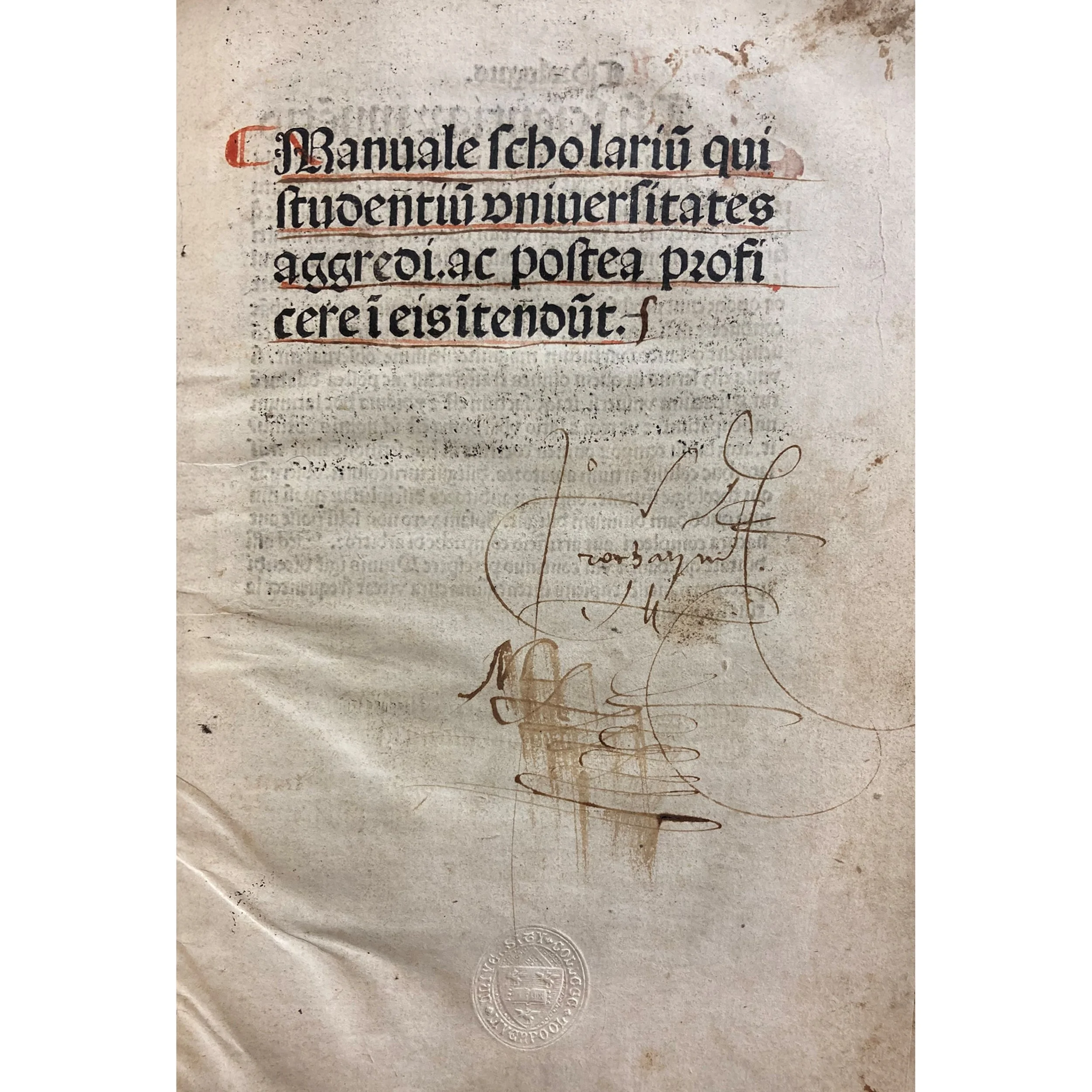The title page of the Manuale Scholarium, a copy from 1492, printed in Deventer (The Netherlands).
If you think student life in the Middle Ages was all about silent monks hunched over manuscripts, think again. The Manuale Scholarium, a 15th-century guide to the dos and don’ts of university life, is a riotous, sharp-witted, and surprisingly relatable glimpse into the world of medieval scholars.
From the very first page, the Manuale makes it clear that studying is only part of the student experience. A scholar, it warns, must be cunning as well as learned:
“The wise student knows when to debate and when to hold his tongue—for many a professor loves the sound of his own voice more than the truth itself.”
The book reads like a mix of survival guide and insider gossip, covering everything from how to avoid punishment for missing lectures to the best ways to win the favor of wealthy patrons. It does not shy away from the realities of student poverty, offering advice on stretching a meal and securing a free drink:
“If you must choose between buying books and buying ale, buy ale—for a man with friends may always borrow a book, but a book alone will not bring him friends.”
Despite its playful tone, the Manuale also has moments of genuine wisdom, reminding students that learning is more than just memorizing texts. It urges them to travel, to listen, to debate, and to experience the world beyond the classroom walls:
“A scholar who never wanders beyond the city gate is like a bird that refuses to leave its cage—he sings well enough, but he knows nothing of the sky.”
Reading the Manuale Scholarium today is like stepping into a medieval tavern filled with rowdy, brilliant young minds—some studious, some scheming, but all navigating the strange world of university life. It is proof that, despite the centuries, students have always been students: curious, ambitious, rebellious, and sometimes just looking for a clever way to skip a boring lecture. Anyone with an interest in history—or who has ever been a student themselves—will find this book utterly irresistible.

